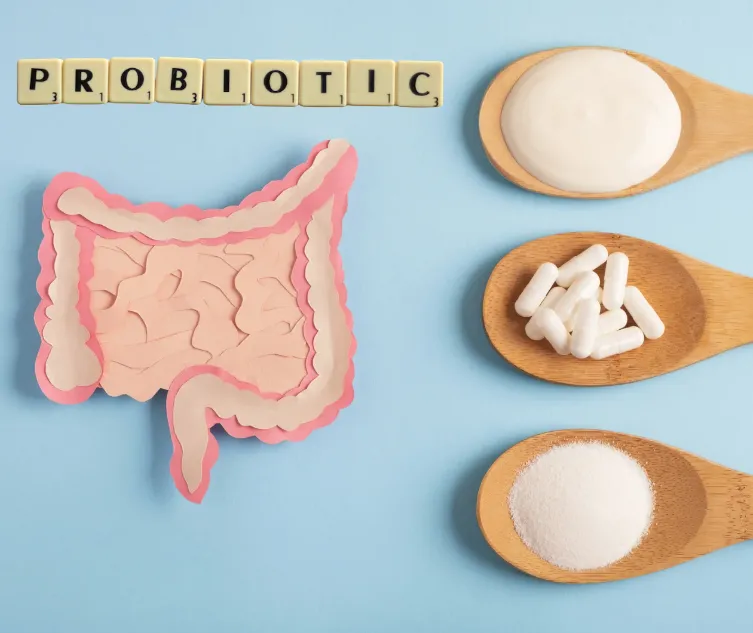
Probiotics for Brain Health and Lowering Mental Stress
If your brain feels foggy, anxious, or emotionally off, the root cause might not be in your head—it could be in your gut.
The gut-brain connection is one of the most important, and often overlooked, systems influencing mood, cognition, focus, and emotional resilience. At the center of this connection is your microbiome—the trillions of bacteria, fungi, and other microbes that live in your digestive tract and communicate constantly with your brain.
Why the Gut Is Called the “Second Brain”
The gut and brain are connected by the vagus nerve, which acts like a two-way communication highway. But the conversation doesn’t stop there—gut microbes also influence brain health through immune signaling, hormone regulation, and the production of neurotransmitters like serotonin, dopamine, and GABA.
When the gut microbiome is balanced and healthy, it supports:
Production of mood-regulating neurotransmitters
Absorption of brain-essential nutrients like B vitamins
Balanced cortisol levels and better stress response
Lower inflammation, both systemically and neurologically
When it’s out of balance (a condition known as dysbiosis), the opposite happens. The gut begins to send distress signals to the brain, contributing to:
Persistent anxiety or feeling on edge
Poor stress tolerance and mental fatigue
Difficulty concentrating or frequent brain fog
Emotional ups and downs that don’t match the situation
The Role of Probiotics in Supporting Brain Function
Not all probiotics are created equal—and not all of them impact the brain. Specific strains have been studied for their unique ability to support neurological and emotional wellbeing. These are the ones worth focusing on:
1. Lactobacillus rhamnosus (strain JB-1)
This strain helps modulate GABA receptors—key players in calming the nervous system. In animal studies, it significantly reduced anxiety-like behaviors and improved the way the brain responded to stress.
2. Bifidobacterium longum (strain 1714 or Rosell-175)
Shown in clinical trials to improve stress resilience, working memory, and cognitive flexibility. It also reduces inflammation in the gut, which positively influences brain function and mood regulation.
3. Lactobacillus helveticus (strain Rosell-52)
Often combined with B. longum, this strain has been shown to reduce cortisol levels and promote emotional stability, especially during high-stress periods.
Getting Started Without the Guesswork
If mental fog, irritability, or chronic stress have become the norm, supporting your microbiome could be a helpful next step. But it’s important to do it with intention:
Choose Targeted Strains
Look for probiotics that list specific strain numbers, not just the species. Formulas that include L. rhamnosus JB-1, B. longum 1714, or L. helveticus Rosell-52 are more likely to have brain-supportive benefits than general blends.
Feed the Gut You Have
Probiotics thrive when fed with prebiotics—fiber-rich foods that encourage good bacteria to grow. Incorporate foods like garlic, onions, leeks, asparagus, or cooked-and-cooled potatoes to support a more resilient gut environment.
Support the Terrain
If the gut lining is inflamed or detox pathways are sluggish, even the best probiotic won’t thrive. That’s why it’s essential to also focus on hydration, mineral replenishment, and calming the nervous system to create the right conditions for a healthier microbiome.
Final Thoughts
The gut-brain connection is not a trend—it’s a powerful, science-backed relationship that influences how you think, feel, and respond to the world around you. If the gut is inflamed, the brain often struggles. But when the microbiome is supported—even with small, consistent steps—everything from mood to mental clarity can begin to shift.
You don’t need a total overhaul to start feeling better. One change at a time, with the right support, can make all the difference.
If you would like some tools to help strength the gut-brain axis 👉 [Book a free call here].
